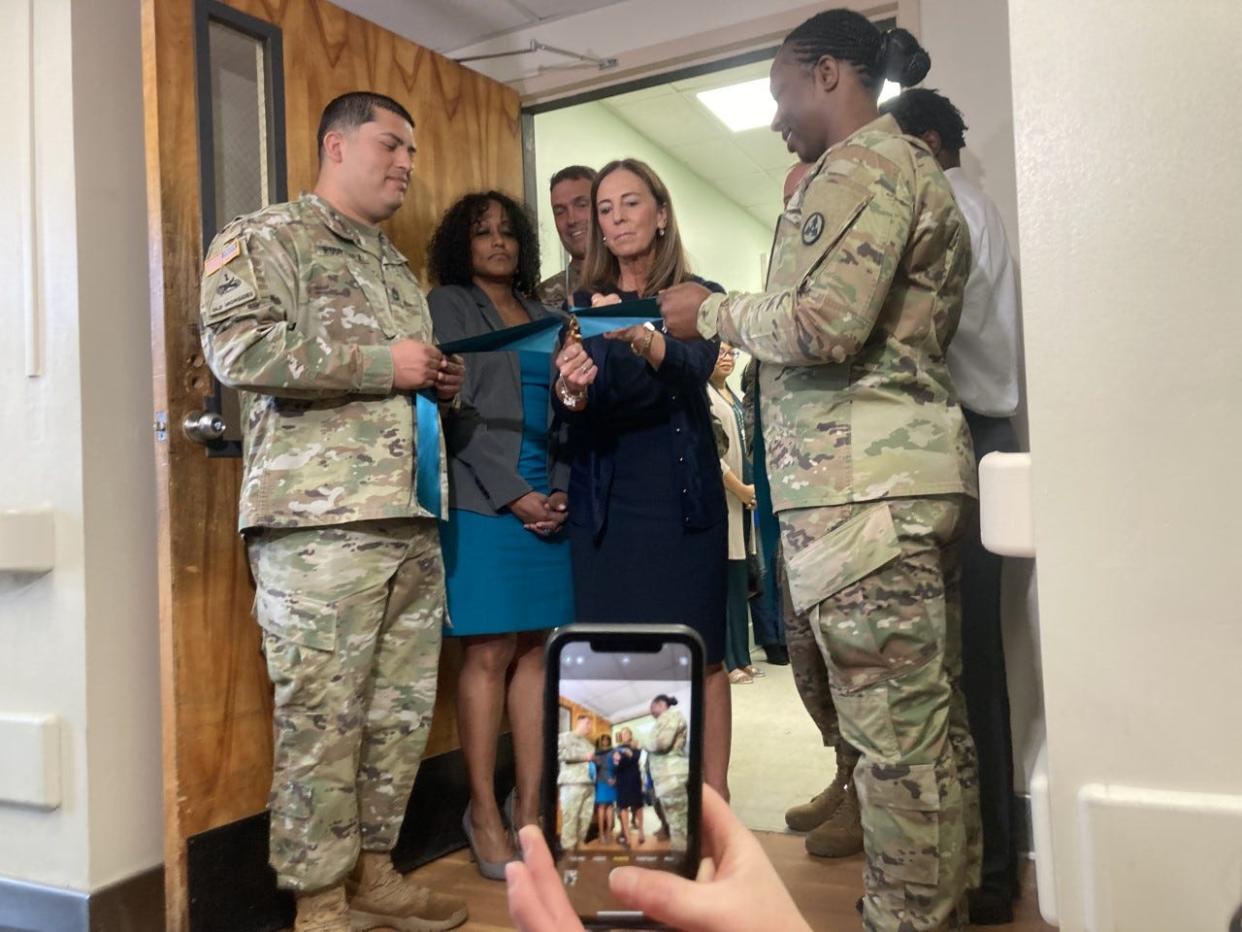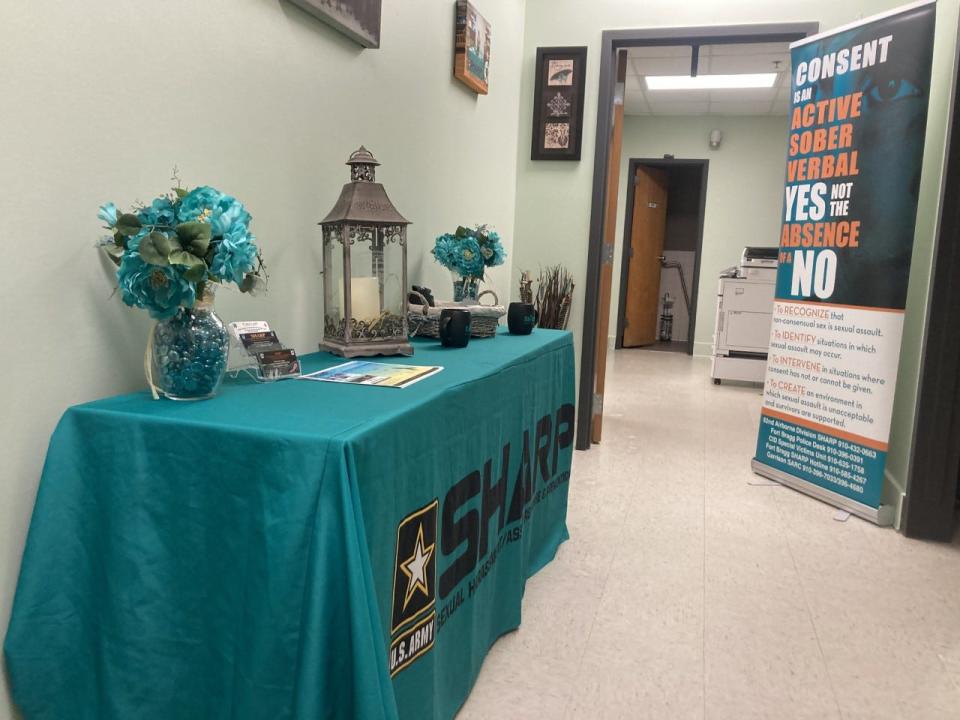How Fort Bragg is changing its sexual assault program and piloting a new type of office

Fort Bragg is one of six Army installations across the U.S. to take part in a pilot program that changes how and where victims of sexual assault receive care on post.
The new Sexual Harassment/Sexual Assault Fusion Directorate office, located in the Soldier Support Center at Fort Bragg, was revealed Thursday.
The program is a response to recommendations from the Fort Hood Independent Review Committee’s review of the death of Fort Hood soldier Spc. Vanessa Guillen, said Col. Erica Cameron, a representative of the Army’s People Task Force that worked to address the committee’s recommendations.
Guillen was last seen April 22, 2020, and her dismembered remains were found June 30, 2020, buried near a river 20 miles east of Fort Hood.
The soldier accused of killing her shot himself to death as investigators were closing in.
More: What does the Fort Hood report say about Fort Bragg sexual assaults?
Guillen’s family told media that before her disappearance, she told her family she experienced sexual harassment at the installation.
The Fort Hood Independent Review Committee released its findings in December 2020 and included references to reported crimes at Fort Bragg.
According to the committee's report, there were 51 violent sex crimes reported at Fort Bragg in 2018 and 49 in 2019.
In 2018, there were 20 rapes or attempted rapes reported and 14 in 2019.
According to an Army report for fiscal year 2020, there were 3,250 reports of sexual assault Armywide, with 2,532 of the victims being service members.
The Army report says that there were 2,1,27 service member offenders Armywide and 100 non-servicemember offenders during the FY2020.
Cameron said the findings from the Fort Hood report focused on the delivery of services, accessibility of care, transparency and accountability to victims of sexual harassment and assault across the Army.

More: What National Defense Authorization Act says about military sexual assault investigations
The Fusion Directorate is a response to the findings, she said.
Kimberly Green, Fort Bragg’s Fusion director, said the program serves as an “one-stop” location away from the victim's immediate unit or command where victims can have contact with medical teams, criminal investigators and victim advocates instead ofhaving to visit multiple buildings across post.
The program serves soldiers, their family members and Department of Army civilians.
Green said the goal is for “excellent victim and survivor” care with transparency, while empowering victims to choose how they receive care.
“We want to make sure that they get the legal care, the medical care and the advocacy care, just the support … that they deserve,” she said.
The Fusion program will also serve as a monthly training branch for victim advocates and SHARP professionals, who will train anyone in a leadership position from the squad level up, Green said.
The program’s directorate has a staff of about 10, but that does not include the behavioral health teams, legal service teams and medical teams the program will coordinate with, she said.
More: Secretary of defense, Congress seek to remove sexual assault cases from chain of command
Cameron said the Fusion directorate is intended to make care easier for victims, while improving accountability and transparency.
“It can take years for a victim to recover from the trauma of sexual harassment and sexual assault,” she said. “This team is here to support them throughout the entire life of that. It can take years to prosecute a case. This team is meant to maintain the continuity of that throughout.”
Though there are six installations with the pilot program, Cameron said improving transitions like a victim requesting to transfer to a new installation is intended to be seamless for continuous care.
Maj. Gen. Brian Mennes, deputy commander of the 18th Airborne Corps and Fort Bragg, said the space for the program allows for anonymity since it is in the same building as the Soldier Support Center.
He said staff will be caring for soldiers “in a way that’s respectful and caring and appreciative of privacy.”
Col. Scott Pence, Fort Bragg’s garrison commander, said Fort Bragg is fortunate to be part of the pilot program.
More: How Fort Bragg soldiers want to change Army sexual assault policy
“When the Army chooses a place to do things, we sometimes benefit from our size because if they can prove that something works here, it’ll work anywhere,” Pence said.
With more than 55,000 service members, Fort Bragg is the Army's most populated installation.
Staff writer Rachael Riley can be reached at rriley@fayobserver.com or 910-486-3528.
Huge savings: $1 for 3 months
Subscribe today to support local journalism and enjoy unlimited digital access including videos, apps, sports news, and more. Special introductory offer for new subscribers only.
This article originally appeared on The Fayetteville Observer: How Fort Bragg is responding to Fort Hood's report on sexual assault

